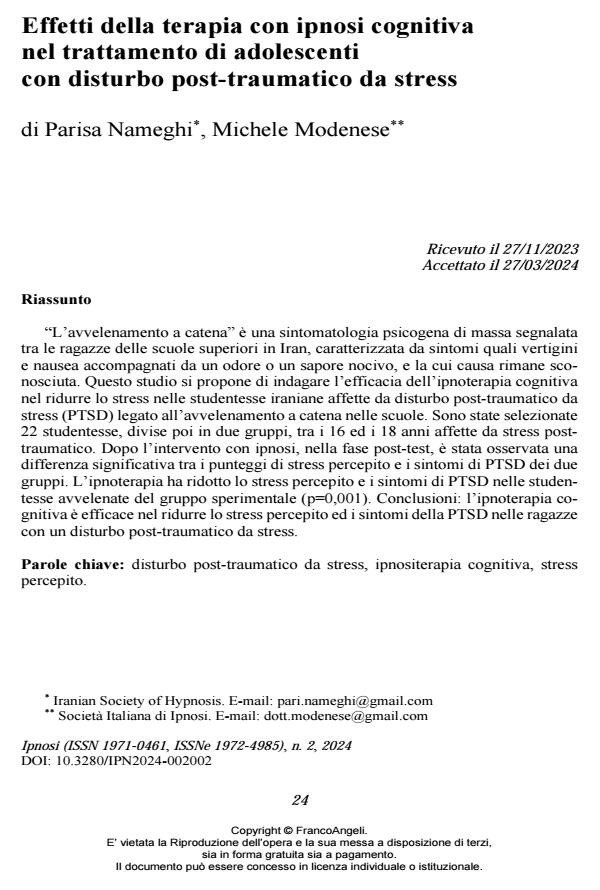The effects of cognitive hypnosis therapy in the treatment of adolescents with posttraumatic stress disorder
Journal title IPNOSI
Author/s Parisa Nameghi, Michele Modenese
Publishing Year 2025 Issue 2024/2
Language Italian Pages 14 P. 24-37 File size 192 KB
DOI 10.3280/IPN2024-002002
DOI is like a bar code for intellectual property: to have more infomation
click here
Below, you can see the article first page
If you want to buy this article in PDF format, you can do it, following the instructions to buy download credits

FrancoAngeli is member of Publishers International Linking Association, Inc (PILA), a not-for-profit association which run the CrossRef service enabling links to and from online scholarly content.
“Chain poisoning” is a mass psychogenic disease reported among high school girls in Iran, characterized by symptoms such as dizziness and nausea perceived by a noxious smell or taste, and the cause remains unknown. This study aimed to investigate the effectiveness of cognitive hypnotherapy in reducing stress in Iranian female students suffering from post-traumatic stress disorder (PTSD) related to chain poisoning in schools. 22 female students in the age group (16-18) years suffering from post-traumatic stress, were selected using sampling method and were randomly divided into two experimental (11 people) and control (11 people) groups. In the post-test stage, a significant difference was observed between the perceived stress scores and PTSD symptoms of the two groups; hypnotherapy reduced the perceived stress and PTSD symptoms in female students who were poisoned in the experimental group (P=0.001). Conclusion: Cognitive hypnotherapy is effective in reducing perceived stress and PTSD symptoms in girls with post-traumatic stress disorder.
Keywords: post-traumatic stress disorder, cognitive hypnotherapy, perceived stress.
Parisa Nameghi, Michele Modenese, Effetti della terapia con ipnosi cognitiva nel trattamento di adolescenti con disturbo post-traumatico da stress in "IPNOSI" 2/2024, pp 24-37, DOI: 10.3280/IPN2024-002002